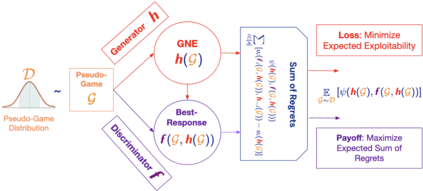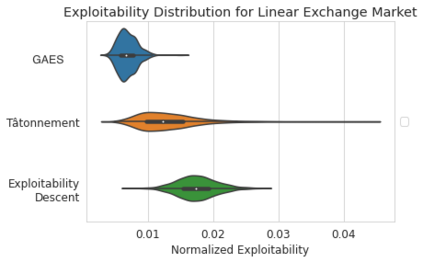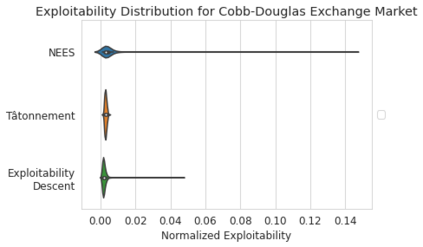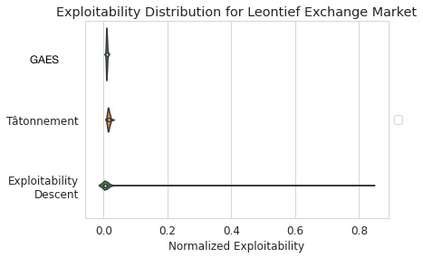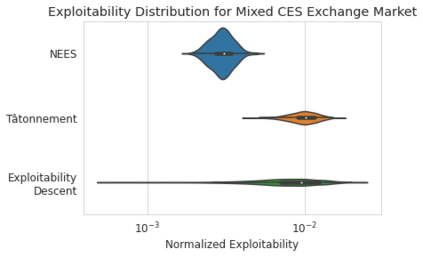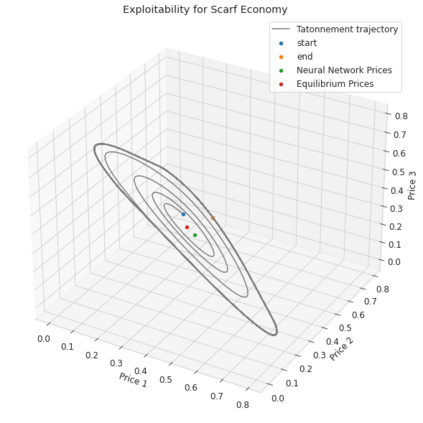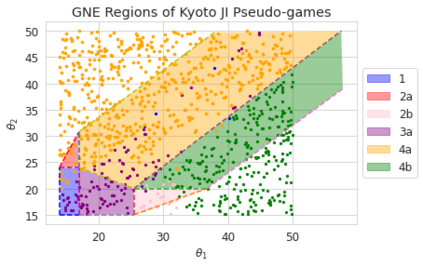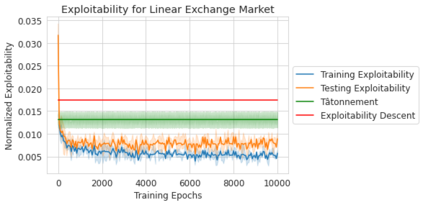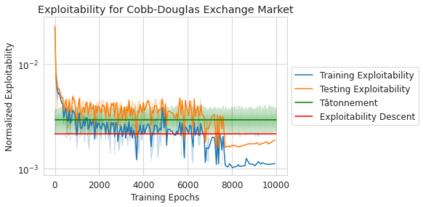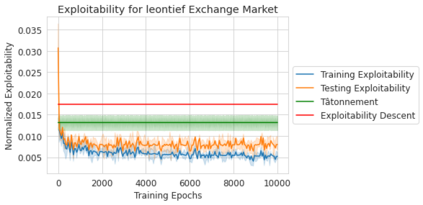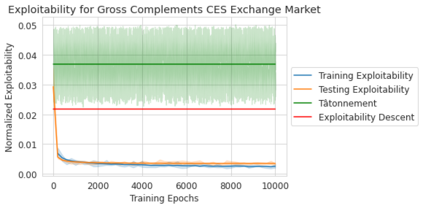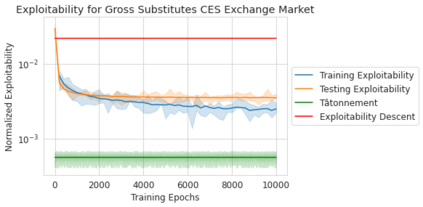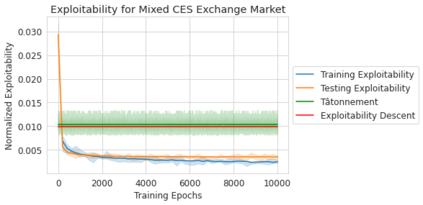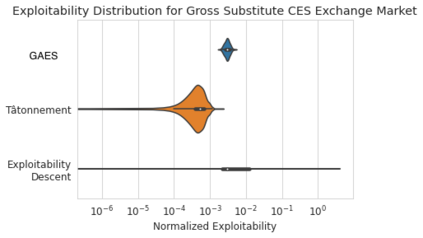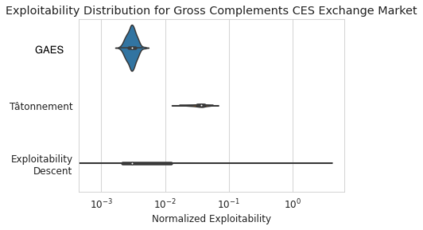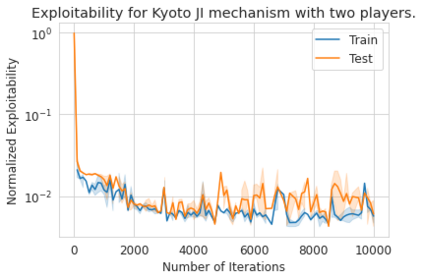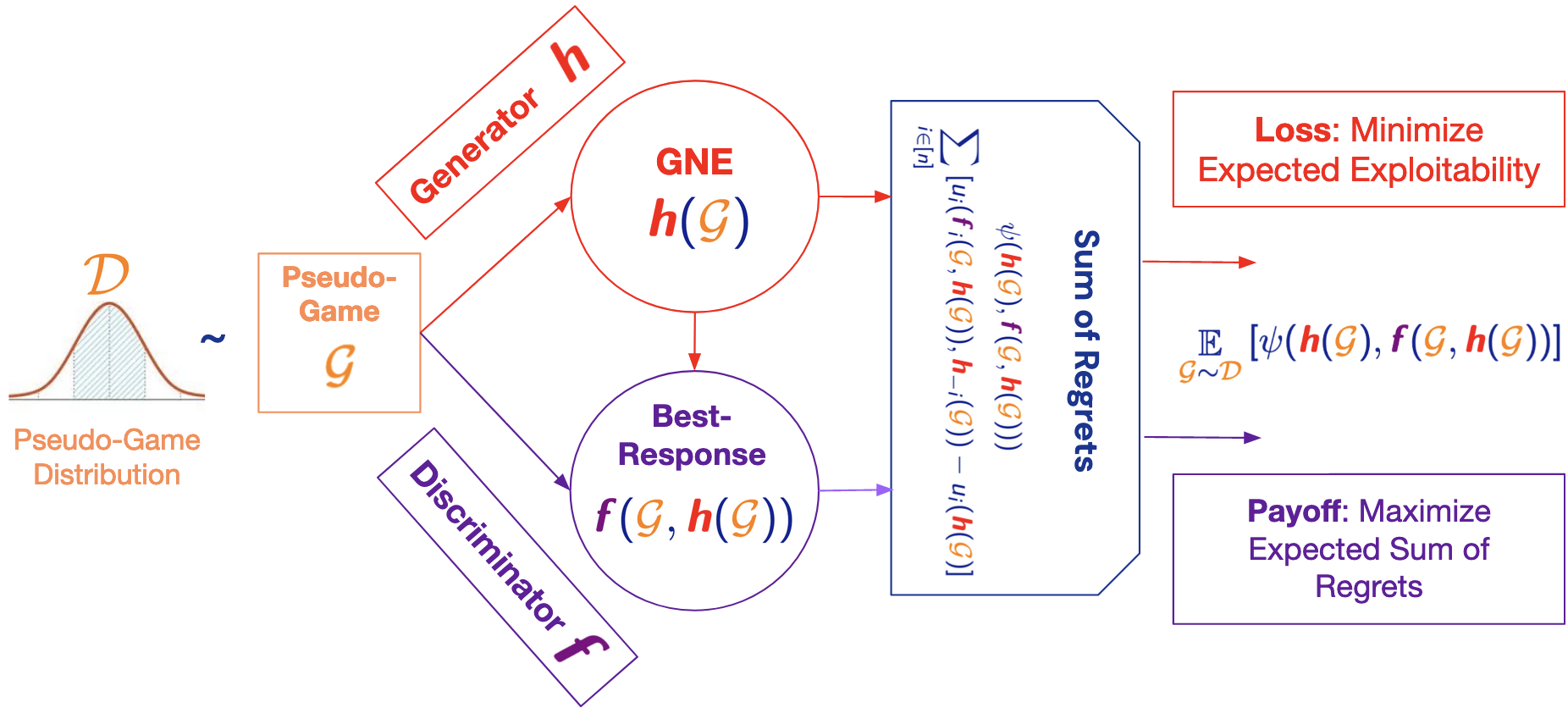We introduce the use of generative adversarial learning to compute equilibria in general game-theoretic settings, specifically the \emph{generalized Nash equilibrium} (GNE) in \emph{pseudo-games}, and its specific instantiation as the \emph{competitive equilibrium} (CE) in Arrow-Debreu competitive economies. Pseudo-games are a generalization of games in which players' actions affect not only the payoffs of other players but also their feasible action spaces. Although the computation of GNE and CE is intractable in the worst-case, i.e., PPAD-hard, in practice, many applications only require solutions with high accuracy in expectation over a distribution of problem instances. We introduce Generative Adversarial Equilibrium Solvers (GAES): a family of generative adversarial neural networks that can learn GNE and CE from only a sample of problem instances. We provide computational and sample complexity bounds, and apply the framework to finding Nash equilibria in normal-form games, CE in Arrow-Debreu competitive economies, and GNE in an environmental economic model of the Kyoto mechanism.
翻译:我们引入了基因对抗性学习,以计算一般游戏理论环境中的平衡,特别是 emph{ presedo- games} (GNE) (GNE) (GNE) (GNE) (在 emph{ posedo- games} ) (CE) (CE) (在 Arrow-Debreu 竞争经济中 ) (CE) (CE) (CE) (CE) 。 Pseudo- games 是一种游戏的概括性游戏,其中玩家的行为不仅影响其他玩家的报酬,而且影响他们可行的行动空间。虽然GNE和CE(CE)的计算在最坏的情况下(即PPAD-hard) (GNE) (G-Debreure ) (GArown-NE-DER) (CE-NE-NE-NE-DER) (C-NE-DER-E-NAB ) 经济机制中很难找到纳什基平调调的正常游戏, 和竞争性环境机制。

